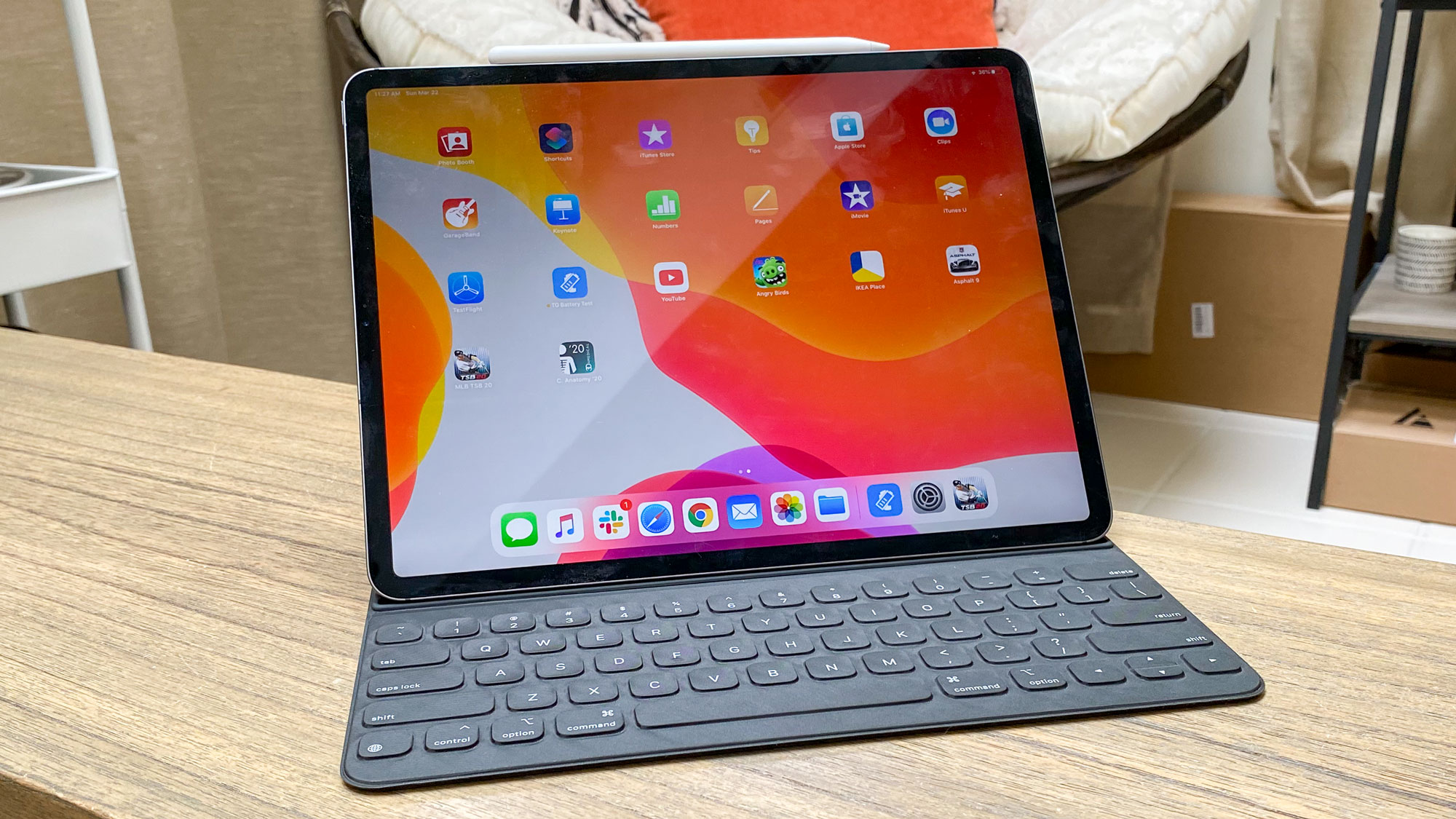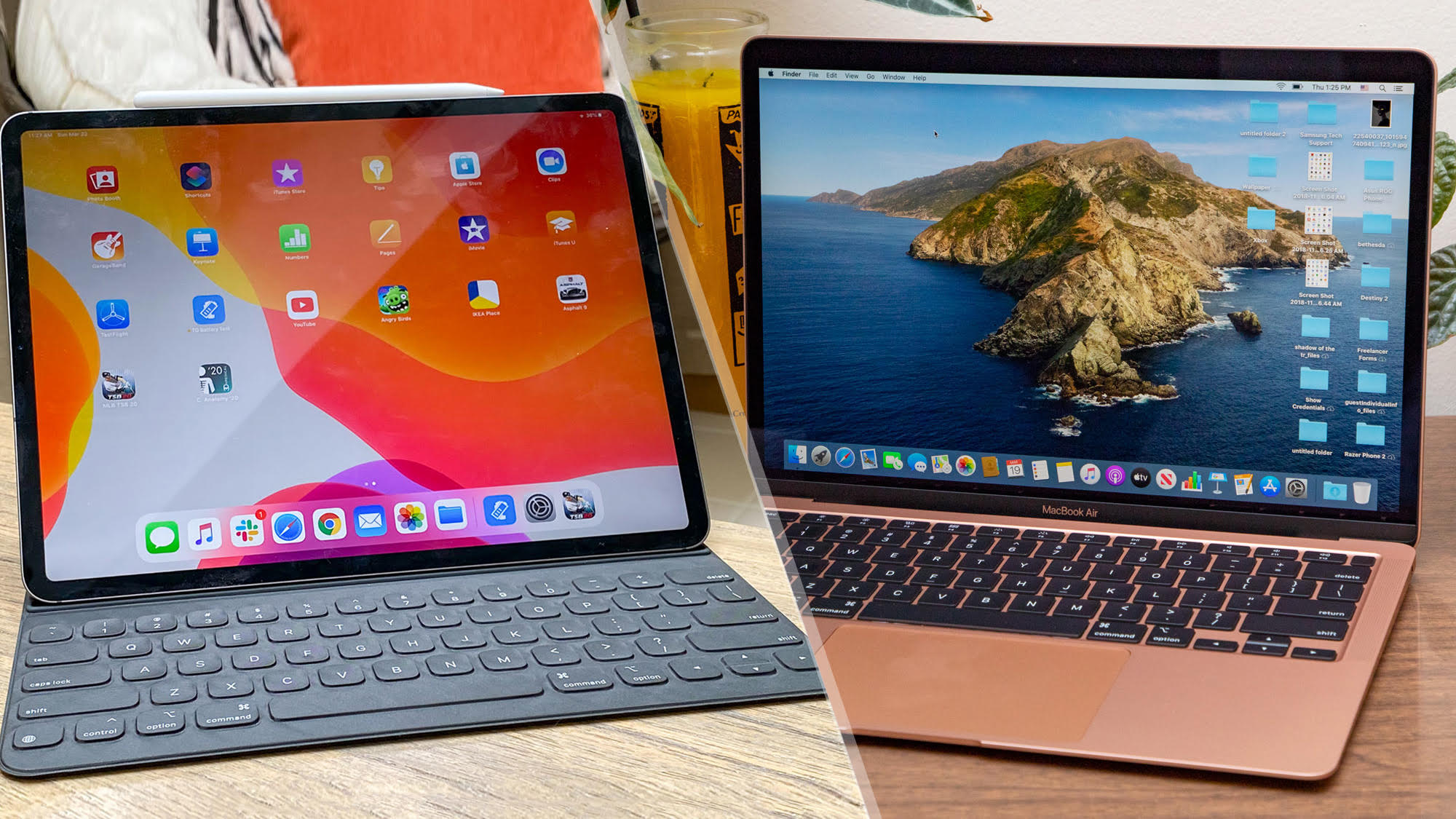The next iPad Pro could destroy laptops with this killer upgrade
Apple’s next iPad Pro could be a true laptop killer thanks to its A14X chip

The next iPad Pro could come with an upgraded take on the A14 Bionic chip the iPhone 12 is expected to have, potentially giving it the power to take on fully-fledged laptops.
A reasonably reputable tech leaker on Twitter going by the name of Fudge noted that the next wave of iPad Pro tablets will come with the A14X chip. Fudge didn’t note where this information came from or any expected specs of the A14X chip, but it’s likely to a powered-up version of Apple’s next-generation A-series chipset that will almost certainly debut in the next iPhone.
- iPad Pro vs. iPad: Which tablet is right for you?
- MacBook Pro 16-inch vs Dell XPS 15: Which laptop wins?
- Just in: iPhone 12 major delay just revealed
An upgraded A14 Bionic could promise laptop-beating performance in the next iPad Pro. That’s because the A14 Bionic is expected to be Apple’s first 5-nanometre chip. Leaked iPhone 12 benchmarks show that it could not only destroy rival Android phones on performance but also potentially challenge the power of Apple’s own MacBook Pro laptops.
iPad Pros with A14x, codenamed J517 (small) and J522 (big)June 3, 2020
The benchmark leak came courtesy of an alleged Geekbench 5 scorecard which appears to feature the A14 Bionic running at 3.1GHz. If the benchmark is to be believed, the chip’s processor managed a single-core score of 1,658 and a multi-core score of 4,612. Comparatively, the MacBook Pro 13-inch 2020 yielded a single-core score of 4,399 in our review.
So there’s a good chance that an upgraded take on the A14 Bionic in the form of the A14X could turn the iPad Pro into an absolute powerhouse of a tablet. That's impressive, considering that the current iPad Pro is hardly a slouch.
In our testing, the iPad Pro 2020's A12Z Bionic chip scored 4,720 on the multi-core benchmark and 1,126 on the single-core test in Geekbench 5, beating the Surface Pro 7’s score of 4,443 in the multi-core test. Considering the Surface Pro 7 is using Intel’s latest 10th Gen Core i5 CPU, the iPad Pro’s performance is especially noteworthy.
So if the A14 Bionic can beat the A12Z Bionic, an A14X-equipped iPad Pro could have enough performance to beat even some of our best laptops. And it could make a mockery of Android and Windows 10 tablet performance.
Sign up to get the BEST of Tom's Guide direct to your inbox.
Get instant access to breaking news, the hottest reviews, great deals and helpful tips.
Beyond the benchmarks

Of course, raw performance in benchmarks isn’t always indicative of the true real-world performance of a laptop or tablet. A lot of apps and tools that run well on a macOS laptop might not translate well to iPadOS and thus run badly despite all the performance an iPad Pro could bring to bear.
And even if a 2021 iPad Pro could trounce a MacBook Pro in raw performance, it still needs to be as usable and good at getting things done as Apple’s slick laptop. A lot has been done with iPadOS, including the addition of mouse cursor support, to make it feel more like a laptop when used with the iPad Pro Magic Keyboard.
But there are still apps that don’t seem to behave well with iPadOS when one tries to use a cursor with them. So Apple still has work to do before iPadOS can pull double duties as both a tablet and pseudo laptop experience.
A new iPad Pro isn’t likely to arrive until 2021, meaning Apple has plenty of time to refine iPadOS into a more laptop-like experience without compromising its core mobile operating system. If Apple can do this, the iPad Pro could really start to be a proper laptop replacement.
Even if Apple falls short, the performance potential of the A14x paints a positive picture for the idea of a MacBook SE running on an ARM-based chip. Such a machine could be a powerful reworking of the now-defunct 12-inch MacBook, and act as a new rival to Chromebooks and lower-end Windows 10 laptops.
Roland Moore-Colyer a Managing Editor at Tom’s Guide with a focus on news, features and opinion articles. He often writes about gaming, phones, laptops and other bits of hardware; he’s also got an interest in cars. When not at his desk Roland can be found wandering around London, often with a look of curiosity on his face.
-
jack_straw Yay Geekbench score!Reply
How does this make it a laptop destroyer? The same old limitations remain, because iOS is still iOS, and Apple is still Apple. No point in rehashing the reasons why iPads are not laptop killers for many use cases, since they are all over the internet.

